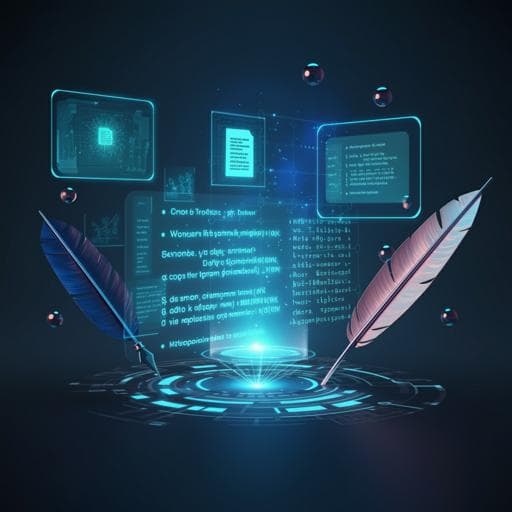
Education
Evaluating the role of ChatGPT in enhancing EFL writing assessments in classroom settings: A preliminary investigation
J. Li, J. Huang, et al.
This exciting study explores how ChatGPT can enhance English-as-a-foreign-language writing assessments. By analyzing holistic scores and qualitative feedback from ChatGPT versions 3.5 and 4 alongside college teachers, researchers found that both AI tools provide more relevant feedback on language, content, and organization. Conducted by authors Junfei Li, Jinyan Huang, Wenyan Wu, and Patrick B. Whipple, this research may redefine how we approach EFL writing evaluations.
Related Publications
Explore these studies to deepen your understanding of the subject.







